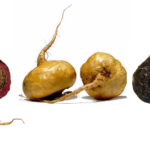Overview
Bergamot (Citrus bergamia) is a type of citrus fruit native to Italy. Essential oils from the peel and the extract from the juice are used to make medicine.
Bergamot oil has several active chemicals and is commonly used as aromatherapy. When applied to the skin, the chemicals in bergamot oil can make the skin sensitive to sunlight.
Bergamot is used for high levels of cholesterol or other fats in the blood. It is also used for anxiety, mental alertness, joint pain, and many other conditions, but there is no good scientific evidence to support these other uses.

Don’t confuse bergamot with other citrus fruits such as bitter orange and sweet orange.
Possibly Effective for
High levels of cholesterol or other fats (lipids) in the blood (hyperlipidemia). Taking bergamot extract by mouth seems to lower low-density lipoprotein (LDL or “bad”) cholesterol levels in people with high cholesterol. It’s not clear if it helps high-density lipoprotein (HDL or “good”) cholesterol or triglyceride levels.
Possibly Ineffective for
Anxiety. Inhaling bergamot oil as aromatherapy doesn’t seem to reduce anxiety in people undergoing radiation therapy.
Mental alertness. Inhaling bergamot oil as aromatherapy doesn’t seem to improve mental alertness. In fact, it might decrease mental alertness in healthy adults due to its relaxing effects.
There is interest in using bergamot for a number of other purposes, but there isn’t enough reliable information to say whether it might be helpful.
Uses & Effectiveness?
Possibly Effective for
High levels of cholesterol or other fats (lipids) in the blood (hyperlipidemia). Taking bergamot extract by mouth seems to lower low-density lipoprotein (LDL or “bad”) cholesterol levels in people with high cholesterol. It’s not clear if it helps high-density lipoprotein (HDL or “good”) cholesterol or triglyceride levels.
Anxiety. Inhaling bergamot oil as aromatherapy doesn’t seem to reduce anxiety in people undergoing radiation therapy.
Mental alertness. Inhaling bergamot oil as aromatherapy doesn’t seem to improve mental alertness. In fact, it might decrease mental alertness in healthy adults due to its relaxing effects.
There is interest in using bergamot for a number of other purposes, but there isn’t enough reliable information to say whether it might be helpful.
Side Effects
When taken by mouth: Bergamot OIL is commonly consumed in foods. Bergamot EXTRACT is possibly safe when taken as a medicine, short-term. Side effects of bergamot extract are usually mild and might include heartburn.
When applied to the skin: Bergamot oil is possibly unsafe. It might harm the skin.
When inhaled: Bergamot oil is possibly safe when inhaled, short-term.
Special Precautions and Warnings
When taken by mouth: Bergamot OIL is commonly consumed in foods. Bergamot EXTRACT is possibly safe when taken as a medicine, short-term. Side effects of bergamot extract are usually mild and might include heartburn.
When applied to the skin: Bergamot oil is possibly unsafe. It might harm the skin.
When inhaled: Bergamot oil is possibly safe when inhaled, short-term. Pregnancy and breast-feeding: It is possibly unsafe to use bergamot oil on the skin when pregnant or breast-feeding. There isn’t enough reliable information to know if bergamot is safe to take by mouth when pregnant or breastfeeding. Stay on the safe side and stick with amounts commonly found in foods.
Children: Bergamot OIL is commonly consumed in foods. But taking large amounts of bergamot oil is possibly unsafe. There have been serious side effects, including convulsion and death, in children who have taken large amounts of bergamot oil. There isn’t enough reliable information to know if bergamot extract is safe to use in children.
Surgery: Bergamot might lower blood sugar and interfere with blood sugar control during surgery. Stop using bergamot at least 2 weeks before a scheduled surgery
Cardiovascular Support – Jarrow Formulas Citrus Bergamot extract contains flavonoids and other polyphenol antioxidants that support cardiovascular and normal metabolic health. Healthy Blood Sugar Support – Research suggests the unique profile of bergamot fruit polyphenol antioxidants support healthy cholesterol and glucose (sugar) metabolism already within normal range. Best Results – Use in conjunction with Jarrow Formulas QH-absorb (ubiquinol).
Clicks images to find out more…
Interactions ?
Moderate Interaction
Be cautious with this combination
Medications that increase sensitivity to sunlight (Photosensitizing drugs) interacts with BERGAMOT
Some medications might make the skin more sensitive to sunlight. Bergamot might also make the skin more sensitive to sunlight. Using these products together might increase the risk of sunburn, blistering, or rashes when the skin is exposed to sunlight. Be sure to wear sunblock and protective clothing when spending time in the sun.
Medications for diabetes (Antidiabetes drugs) interacts with BERGAMOT
Bergamot might lower blood sugar levels. Taking bergamot along with diabetes medications might cause blood sugar to drop too low. Monitor your blood sugar closely.
Bergamot essential oil is commonly used in aromatherapy, alone or with other essential oils.
Bergamot extract has most often been used by adults in doses of up to 1000 mg by mouth daily for 4-12 weeks. Speak with a healthcare provider to find out what dose might be best for a specific condition.






